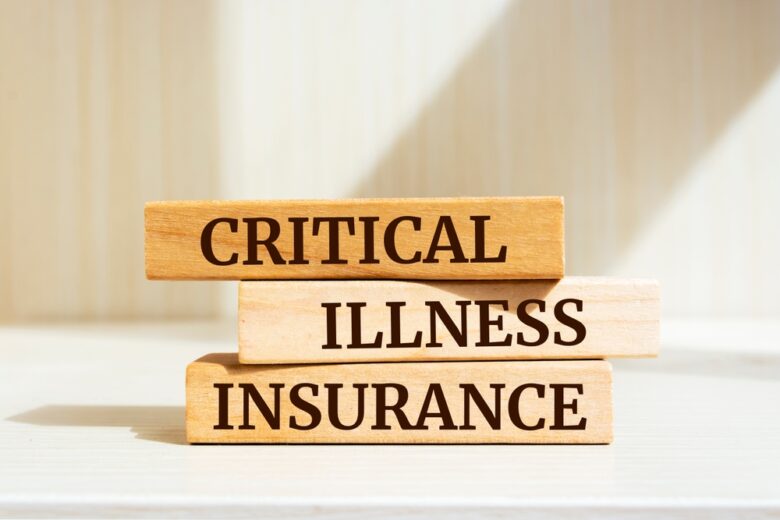At times we can experience unpredictable changes in our lives. You can be living your normal life one day, and the next day receive a phone call with such heartbreaking news that threatens to turn the whole world upside down—a critical illness. Most people are taken by surprise when a critical illness description is given—there is always an emotional shock and panic, and the possible financial issues that emerge are also promotional. This is where people’s cries of Help! Help! Help! are answered by critical illness insurance, which is a necessary backup insurance because all of us at some point in life need help.
This enables you to not only have the emotions of someone battling cancer or other heart diseases, but the knowledge that even in the most trying periods, you have provisions prepared. This is how insurance encompassing critical illness works; it does not merely involve a payment claim but rather an assurance amidst apprehensive times. Let’s get straight to the point: what does this cover, and why is it? When buying any, you need to know the particulars of this cover and how you get it whenever you feel it is appropriate for you.
What is Critical Illness Insurance?
Critical illness insurance is a unique type of insurance that pays out a lump-sum amount on diagnosis of a specific illness covered by the policy. While conventional health insurance policies cover just out-of-pocket medical expenses, critical illness insurance policies cough up a lump sum amount to the insured upon diagnosis.
You may choose to use that payout in any way, like dealing with hospital costs, renovating your house for better living conditions, or even compensating for income loss. These policies, which are less rigid regarding their usage, are torn into pieces by the issues emanating from such tribulations.
Generally, the major ailments that are likely to be compensated include heart attack, stroke, cancer, and other various ailments that disrupt life as it is known. There are policies with terms of what is geocentric and non-geocentric. Particularly, these details are very necessary, especially after one has made the decision to go for a plan that meets his needs as well as lifestyle.
Type of Critical Illness Covered:
Policyholders are most likely to seek critical illness insurance, which provides a wide range of health conditions and organises one’s health and financial implications too.
A common ailment is heart attack, stroke, and some forms of cancer, which commonly affores most people and require the patients to follow a more extensive course of therapy that can be very expensive.
Females and males insurance companies will offer such benefits away from the life critical disease policy to include chronic kidney disease, severe malignancy related to organ transplant or arduous complications as a result of a trauma or illness. They are, however, subject to contractual limitation.
Some of the clients order that a rider illness limit policy attached regardless of how rare the illness besides cancer or heart attacks is for instance, such as multiple sclerosis or Parkinson’s disease. This makes sure you have coverage no matter the illness you are diagnosed with.
Benefits of Having Critical Illness Insurance
In a moment of confusion and uncertainty, it is absolutely relief to have such a cover. If you are diagnosed with a critical illness, this insurance policy will come to your aid as it offers compensation at a time you are most vulnerable. Not all medical expenses are likely to be catered for by your health insurance, and this is where this coverage comes into play. These include treatments, surgeries, and even experimental therapies which a patient may require. Just knowing there is help decreases the burden so one can concentrate on recovery.
More so, this payout will also replace the earnings you would have obtained had you been able to work. This entails that there will be piled-up bills when you are out having to worry about spending but rather the far more important healing process. Another wonderful advantage of having an insurance policy cover against critical illnesses is that it leads to preventive health care. Soon after, they secure themselves if anything comes up, in which case they motivate themselves to seek regular medical examinations and early diagnostics. Health insurance, just like this one, gives a feeling of peace of mind to you and your family.
An In-Depth Guide on Which Policy is Best For You:
In search of the appropriate critical illness insurance policy, a person might feel as if they are in a dilemma. Begin with knowing your background in terms of family history and personal health. It is important to know what risks you have to face. After that, you should think about the diseases that are covered by other policies. One policy may include a larger number of ailments than another. Don’t forget lung insurance if you are worried about lung diseases or go for comprehensive coverage including both cancer and heart disease.
Examine the payout methods available in every policy plan. Some individuals may benefit more from a lump sum payment than others, who may prefer monthly payments to meet certain expenses. One of the key features to consider is the waiting periods and exclusions that come with the policy. Understand these points well to ensure you do not get disappointed when the time comes to make a claim. If you still have queries, seek help from an insurance broker; it is their responsibility to know their client’s needs in relation to their active lifestyle and financial capabilities. Study the wording and conditions of the agreement before committing to it.
Myths About Critical Illness Insurance:
Critical illness insurance has some people’s perception that such ‘health insurance’ is just like the existing normal insurance policies. This is not so. Health insurance includes many more types of costs, while in the critical illness policy, where the life insured is diagnosed with designated diseases, the policyholder will be given a lump sum payment.
Another common misunderstanding is that this shit is for sick people over 60 years of age. Any age can fall ill, but why should we sacrifice planning against any such risk for any reason whatsoever?
Their perception is that such policies provide cover only for cancer, but such policies generally cover heart diseases, strokes, etc. Heres how and why it’s crucial to read policy coverage.
Most people live under the impression that every critical illness plan is quite expensive. Contrary to this stereotype, many factors, including age and coverage amount, affect the costs. It is easy to shop around to come across quite reasonable plans for everyone.
The Cost of Not Having Coverage
Declining to take any form of critical illness cover is likely to be ruining financially. The repercussions of stashing a substantial amount of medical bills as a result of a bad diagnosis, for instance, would be horrendous. Several families without such a protective cover may end up having to use their savings and even credit cards just to be able to pay for the treatment costs. A huge burden indeed, not just on health but also on family income and relationships.
Additionally, there is the chance of lost wages due to the recuperation period as well. In this situation, if you cannot perform your employment activities because of a debilitating disease, your costs keep coming but your revenue is rapidly diminishing. The psychological effect is also worth thinking about. The pressure of worrying about finances makes it more difficult to manage serious medical issues. It is important to consider those risks as well while comparing to the relatively insignificant amount of money that needs to be spent on acquiring a policy that may bring quite a reassurance during hard times.
Conclusion:
Critical illness insurance provides coverage against unforeseen sicknesses. The most efficient solution is one that lets you have a financial back up from such diseases. Retention of the right policy makes all the positive changes in this World. Quite efficient in making less complicated the process is the assessment of the range of the covered risks and the personal needs of the insured.
Accurate and clear information related to this particular kind of insurance must be presented to correct some of these misconceptions. Its merits are often undervalued, or people who are as educated do not see the need for its purchase. The impact of illnesses of this sort without coverage can be tremendous. Being prepared prevents you and your family from incurring stressful expenses at the time of need. Ending protection against critical illness costs is practical but rather not what most people enjoy. It is a form of prevention for those relatives who are left behind when life processes begin taking unexpected and frequently scary turns.
FAQs
1. Why should I consider purchasing Critical Illness Insurance? What is covered under this Insurance?
For an individual who is covered under this policy, it typically covers life-threatening diseases, including heart attack, stroke, cancer, or major organ transplants. There can be differences in each policy about the details of coverage.
2. For how much shall I purchase this insurance? Will the premiums be the same?
Premiums depend on various factors, such as an individual’s age, health status, and amount of coverage an individual opts for. It is advisable to get as many quotes as possible from different insurers.
3. Can I purchase critical illness insurance with a pre-existing illness? Will it be covered?
Most insurers will look at your medical history before offering coverage. Some will not cover certain pre-existing conditions; others will give you some but limited options.
4. Without this insurance coverage, is it possible to lead a normal, healthy life?
There are many people who do consider it, as it provides for the worst and most often dreaded security for any individual—the financial burden that may occur due to a serious disease.
5. Do I need to have both critical illness insurance and a conventional health insurance policy?
Yes! While traditional health insurance doesn’t take care of the expenses, it does pay for the medical treatment; further, there are no cash payouts, which can help to pay the monthly expenses like mortgages, little ones’ baby care, etc. within the healing process.




